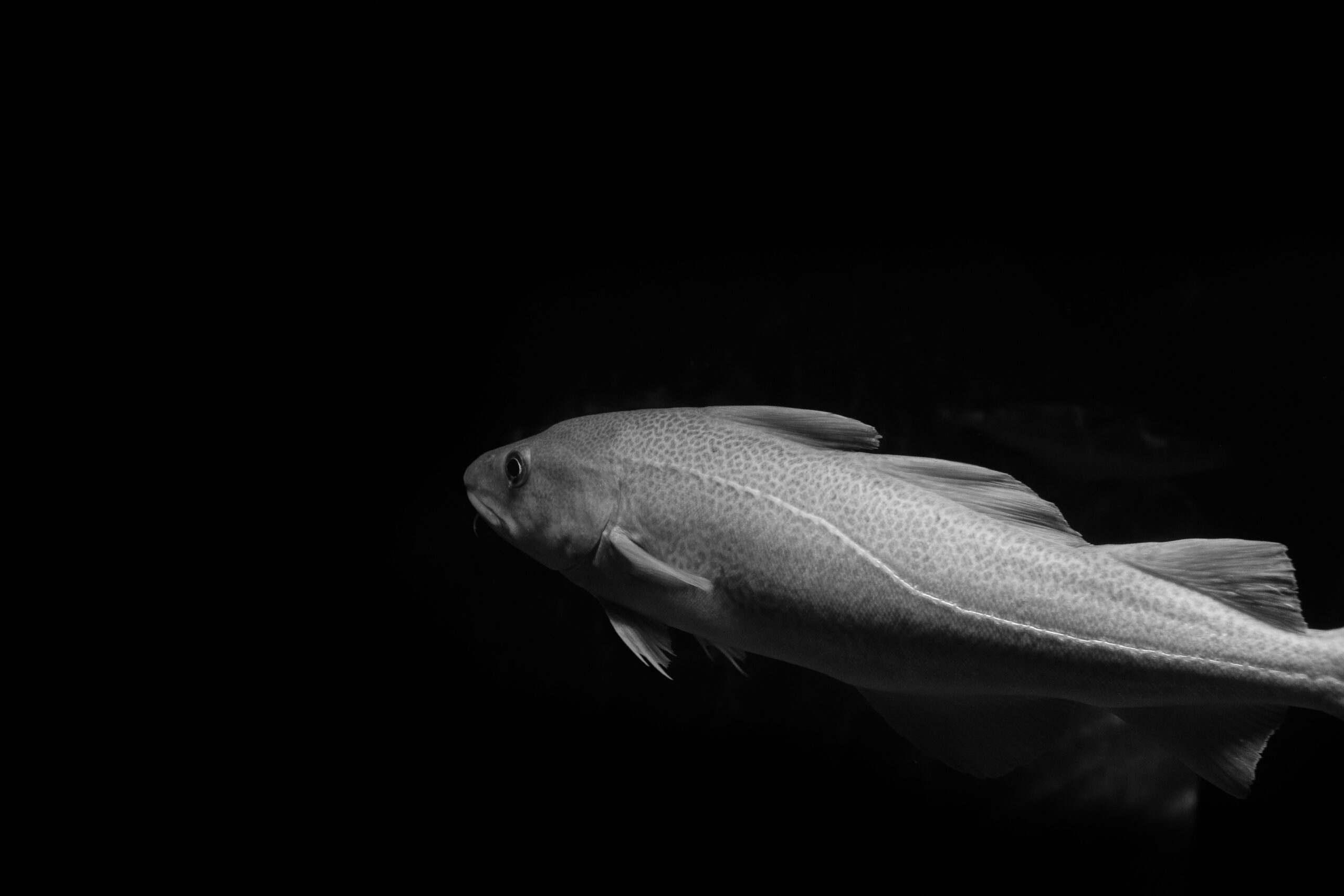Photo by Ricardo Resende
Industry rejects scientific advice as catastrophic
The International Council for the Exploration of the Sea (ICES) has recommended zero catch quotas for all cod stocks in the Northern Shelf for 2026, prompting strong responses from fishing industry representatives who warn the advice could devastate fleets across Scotland and England.
Mike Park, chief executive of the Scottish White Fish Producers’ Association (SWFPA), described the advice as “a mad proposal from an organisation that is fast losing any credibility.” He warned that implementing the recommendation would be catastrophic for Scottish fleets, stating: “In the mixed fisheries that our vessels operate in, it is impossible to catch any fish without catching cod so this recommendation if implemented would wipe out the fleet at the stroke of a pen.”
Elspeth Macdonald, chief executive of the Scottish Fishermen’s Federation (SFF), has called on governments across the UK, EU, and Norway to carefully consider the socio-economic impacts of the latest cod stock advice. She criticised ICES for overcomplicating its assessment of mixing between cod sub-stocks, stating: “In attempting to move forwards, ICES’ advice is actually taking us backwards.”
The National Federation of Fishermen’s Organisations (NFFO) highlighted the complexity behind the headline recommendation, noting that “behind the numbers lies a far more complicated reality, in which a contested computer model and warming seas have led to a nonsensical proposal to stop fishing a population that contains millions of fish and is actually growing.”
Dramatic stock declines documented
According to ICES data, cod in the southern region of the Northern Shelf has experienced 61 per cent declines in stock over the past decade. The north-western region around Scotland has seen a 37 per cent decline, whilst stocks in the Viking area off Norway have fallen 23 per cent since 2015.
The Northern Shelf area covers the English Channel, North Sea up to Norway and the west of Scotland. ICES provides advice on maximum catches that would allow fish stocks to continue to be fished sustainably, though fishing quotas are ultimately set through political negotiations between the EU and coastal countries including the UK and Norway.
Conservation groups demand immediate action
Hugo Tagholm, executive director of Oceana UK, said the science confirmed that North Sea cod was in “grave danger of collapse,” which the charity had warned about in a 2023 health-check of fish stocks. He stated: “Our warnings about multiple populations at risk were ignored, and since then we have had to watch helplessly as the UK Government sold out our seas and communities, allowing fishing pressure to build relentlessly as the largest industrial vessels squeezed out the small local boats.”
Tagholm urged: “Act now, and we can restore our seas to thriving health. We need a clear strategy to end overfishing once and for all, built on justice, and backed by fact.”
Jonny Hughes, senior UK marine policy manager at Blue Marine, said that cod in the North Sea and west of Scotland had joined populations in the Irish Sea and Celtic Sea as having collapsed. He noted that to receive zero catch advice a fish stock had to be in an “abysmal” state, adding: “This is a direct result of decisions in previous years to prioritise short-term economic profit for a handful of largely wealthy fishing companies, at the expense of the environment and the long-term future of fishing communities.”
Shetland proposes alternative management approach
The Shetland Fishermen’s Association (SFA) has proposed maintaining the 2026 total allowable catch (TAC) for Northern Shelf cod at 2025 levels, arguing that ICES advice has been marred by procedural delays, technical errors and scientific uncertainties.
James Anderson, SFA Chair, said: “Implementing zero catch quotas for cod would be fleet-ending madness. Governments cannot expect fishing businesses, surrounded by cod, to tie up for a year and still be here in 2027.”
Anderson added: “Fishing crews in Shetland do not believe that further quota reductions would do anything to encourage growth in the cod stock, and so we are proposing a series of measures that will more successfully balance stock sustainability and economic stability, until the various scientific uncertainties around cod are better resolved.”
The Shetland proposal includes extended spawning ground closures across the North Sea, enhanced real-time closures to protect juvenile cod, voluntary 30 per cent TAC reductions for haddock and whiting to reduce cod bycatch in mixed fisheries, and doubling the scientific quota available for cod studies through industry contribution.
The SFA warned that drastic TAC cuts would devastate North Sea fishing communities, particularly in Scotland, where cod supports £310 million in fishing opportunities.
Government commits to international cooperation
Erica Finnie, oceans campaigner at Greenpeace UK, said: “This crisis proves our oceans are being managed for commercial industrial profit, not small scale fishers, coastal communities and protection. North Sea cod is on the brink, while industrial fishing vessels still plunder UK Marine Protected Areas.”
A Defra spokesperson stated: “It is important the UK, EU and Norway come together to deal with the challenges of managing this international stock. We are committed to rebuilding it to sustainable levels and ensuring we maintain the long-term viability of the UK fleet.”
The final decision on 2026 cod quotas will be determined through political negotiations later this year between the UK, EU and Norway.
